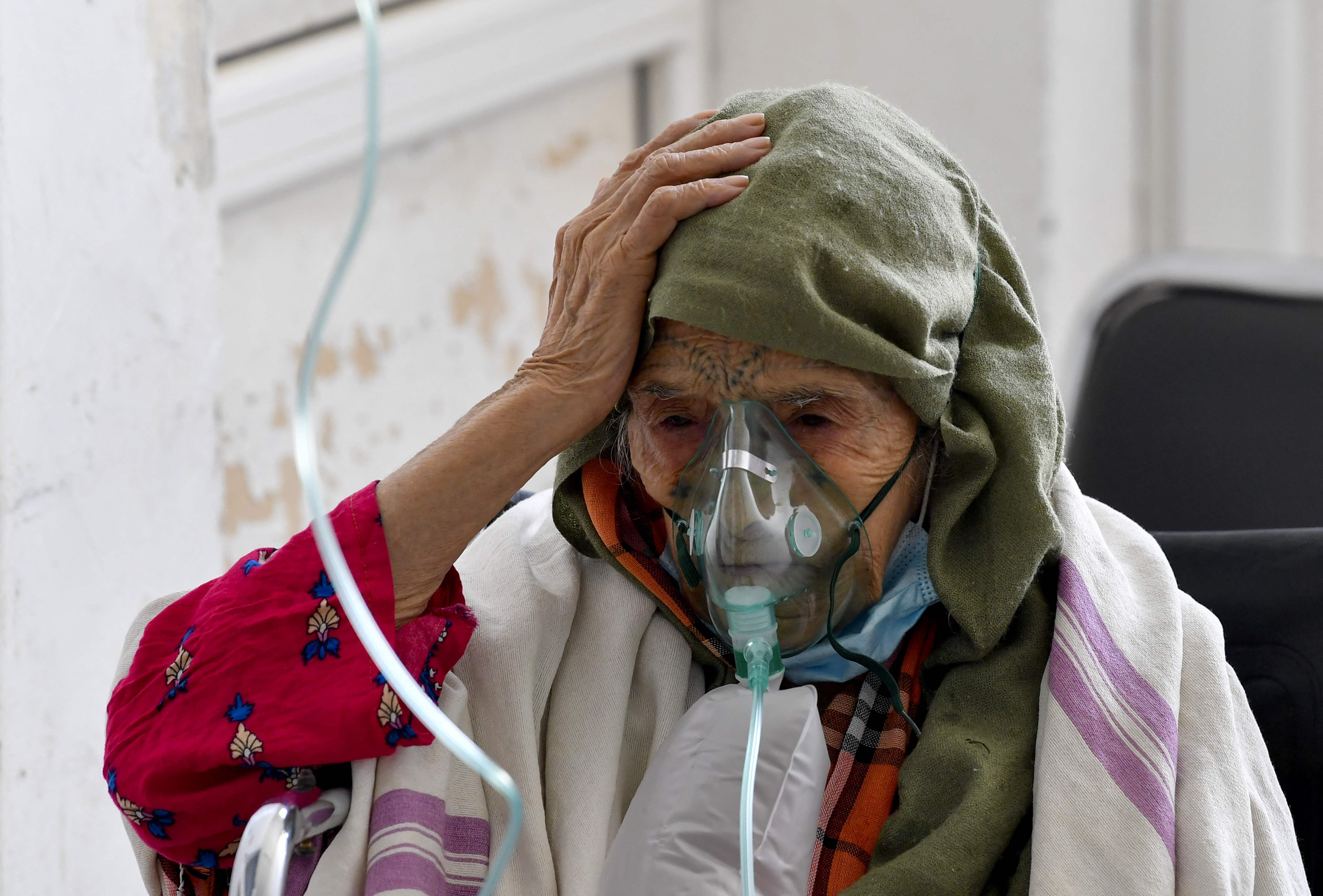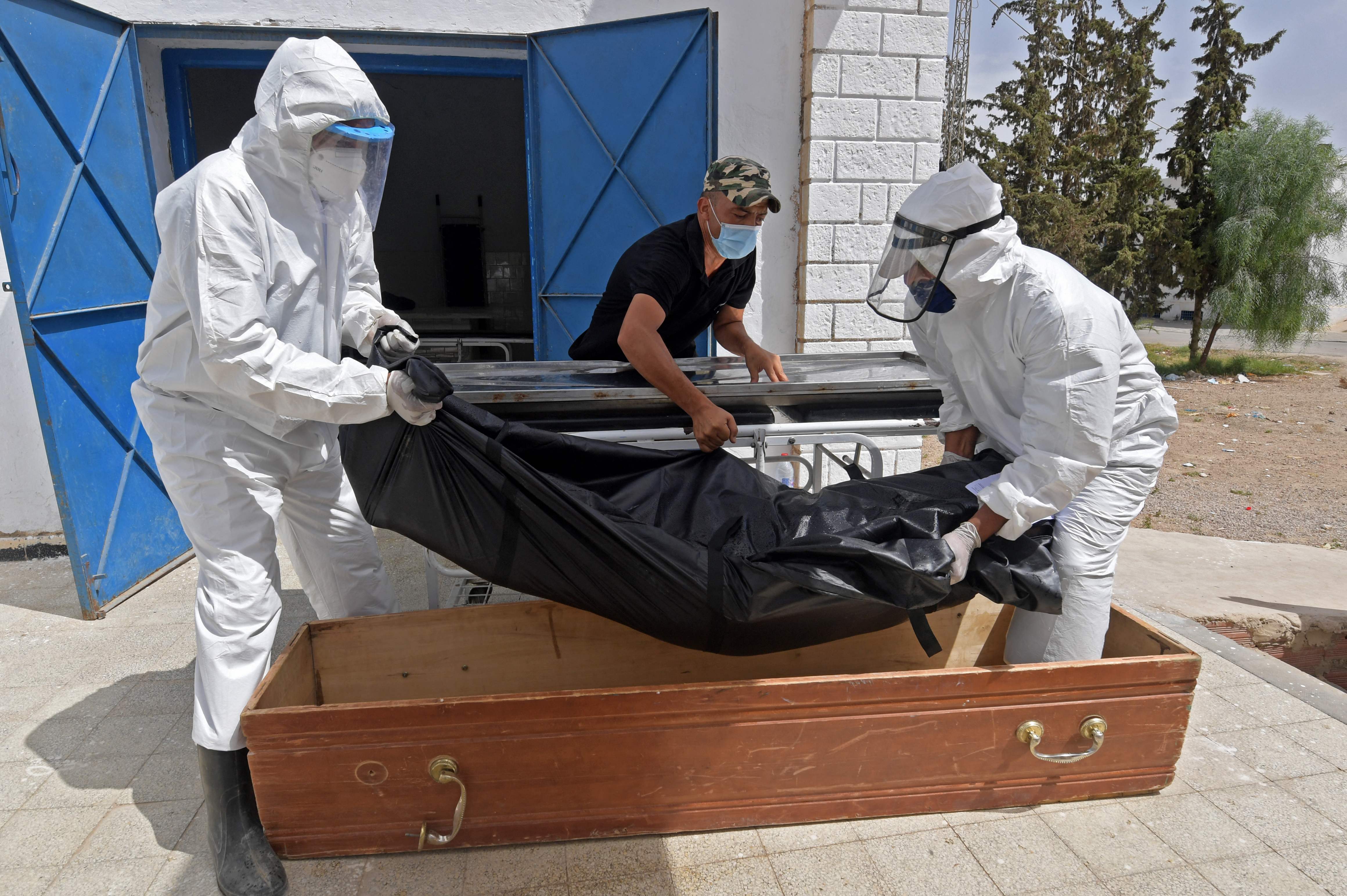Tunisia health system ‘has collapsed’ as Delta variant cases surge across Middle East
Army is called in as Delta variant pushes infection and mortality rates to their highest since the start if the pandemic


Your support helps us to tell the story
From reproductive rights to climate change to Big Tech, The Independent is on the ground when the story is developing. Whether it's investigating the financials of Elon Musk's pro-Trump PAC or producing our latest documentary, 'The A Word', which shines a light on the American women fighting for reproductive rights, we know how important it is to parse out the facts from the messaging.
At such a critical moment in US history, we need reporters on the ground. Your donation allows us to keep sending journalists to speak to both sides of the story.
The Independent is trusted by Americans across the entire political spectrum. And unlike many other quality news outlets, we choose not to lock Americans out of our reporting and analysis with paywalls. We believe quality journalism should be available to everyone, paid for by those who can afford it.
Your support makes all the difference.Tunisia’s health system “has collapsed” and coronavirus intensive care units are overflowing, according to health officials who warned the highly infectious Delta variant was taking hold across the vulnerable Middle East region.
The Tunisian army has been deployed to enforce a new lockdown in some areas as nearly 10,000 new coronavirus cases and 134 deaths were logged on Wednesday alone, a daily record since the start of the pandemic.
Dr Nisaf Ben Alia, a spokesperson for Tunisia’s ministry of health, said the situation was “catastrophic” and attributed the rapid surge to the Delta variant, which is spreading fast through the Middle East and North Africa.
According to the World Health Organisation (WHO), at least 14 out of the 22 countries in the region have now logged the new and more infectious variant, with worrying surges in countries including the United Arab Emirates, Libya, Iraq and Morocco.
In Tunisia, Ben Alia said there were acute shortages of beds and oxygen, a situation that was already overwhelming health workers. Local media reported that medics have been forced to leave the bodies of Covid victims in rooms next to other patients because the morgues are overstretched.
“We are in a catastrophic situation,” Ben Alia said. “The health system collapsed, we can only find a bed in hospitals with great difficulty. We are struggling to provide oxygen... Doctors are suffering from unprecedented fatigue,” she added. “The boat is sinking and to save it, we must all bear the responsibility.”
Dr Pierre Nabeth, who works for the WHO health emergencies programme in the region, called the situation in Tunisia “very alarming”, particularly as only around 12 per cent of the population has been vaccinated.
“It seems that the Delta variant was detected as early as 18 May, which is much earlier than we thought,” Nabeth told The Independent, adding that they expected “a huge increase” in cases across the region as different variants take hold.
“It is very prevalent already. One third of the cases in the UAE are due to the Delta variant, which is very worrying as it is much more transmissible than the other variants or the original strain. We have already observed in the past three or four weeks an increase in coronavirus cases in the region.”
As a precaution, on Thursday Libya closed its border with Tunisia over concerns of a third wave, which could bring its own war-ravaged health care system to its knees.
Universities and schools in Libya have suspended classes for around two weeks for the same reason.
On Friday, Tunisia imposed a full lockdown in the central region of the country, set to last until 17 July, after the infection rate there reached 472 for every 100,000 inhabitants.
Strict lockdowns have also been announced in the capital and surrounding provinces, while the army and security forces are set to be deployed to enforce restrictions.
Some 8,300 cases were recorded on Thursday alone, bringing the total cases to nearly half a million.
There are also mounting concerns about Lebanon, where Delta cases have also been logged.

There, medical importers have warned that hundreds of medicines are missing because of an unprecedented economic collapse, which has seen the local currency lose 90 per cent of its value since last year, making importing goods prohibitively expensive.
Lebanese health officials warned that they were having to ration electricity in wards because of 20-hour power cuts each day and woefully little fuel available for generators.
“Clearly, Covid is on the rise, driven by the spread of the Delta variant,” Dr Firass Abiad, the director of Rafic Hariri University Hospital, Lebanon’s chief coronavirus facility, tweeted on Friday.
“Meanwhile, hospitals continue to suffer from severe power cuts and other shortages. The staff, facing deteriorating working and living conditions, are restless. Can the imminent crash be avoided?”
Meanwhile, the UAE has been placed on several red zone lists because of a surge in cases attributed to new variants.
This week, Saudi Arabia was the latest country to suspend flights with its Gulf neighbour.
Join our commenting forum
Join thought-provoking conversations, follow other Independent readers and see their replies
Comments